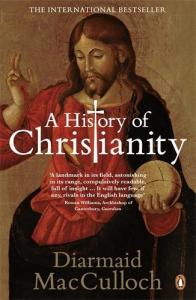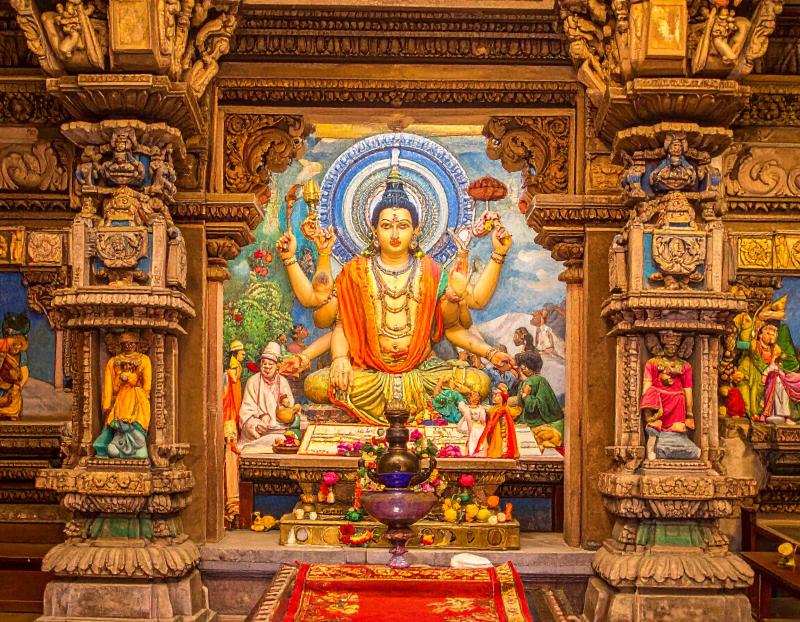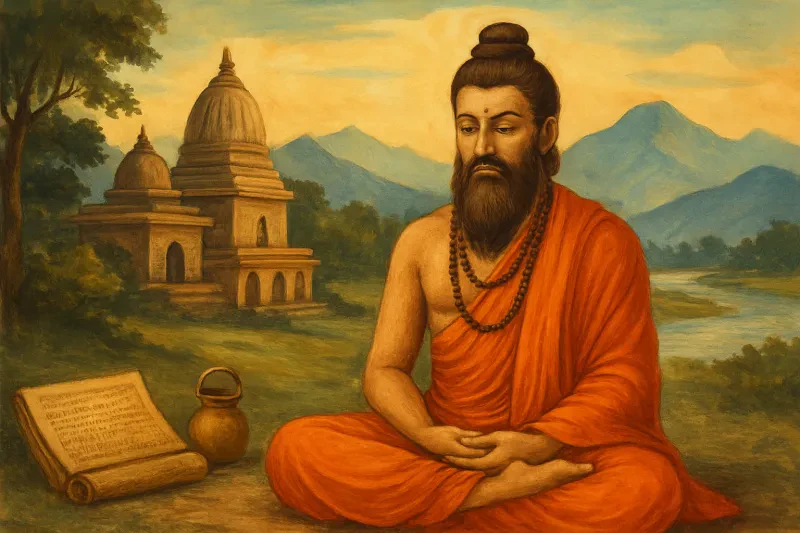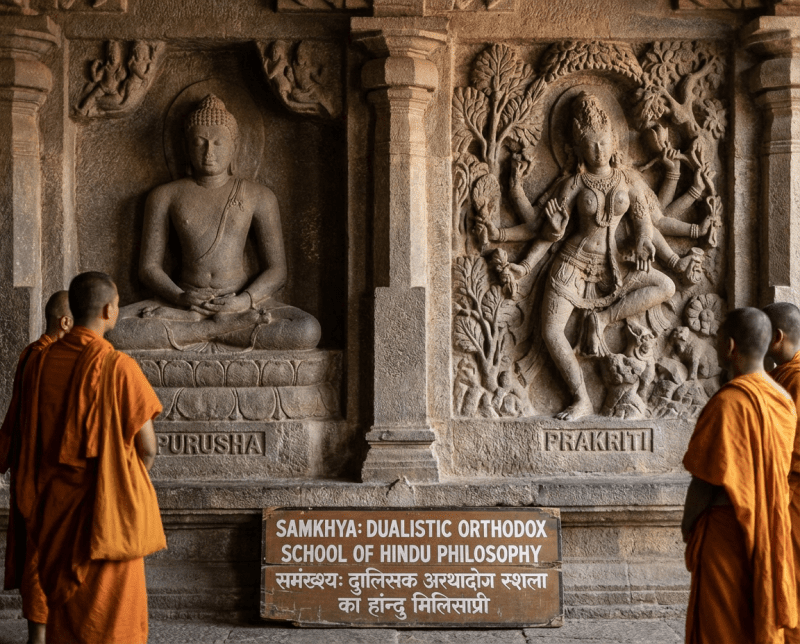Christianity is one of the world's most prominent religions. With around 2.3 billion followers, it’s almost a third of the world’s population. This article is a thorough introduction to Christianity.
Historical Context
Roots of Christianity
Christianity emerged in the 1st century CE in the Roman province of Judea, with its roots in Judaism. The life and teachings of Jesus of Nazareth are at the center of Christianity. Jesus’ message was one of love, forgiveness, and the Kingdom of God, and he is said to have performed miracles and preached in parables.
After Jesus’ crucifixion in approximately 30 CE, his disciples began to spread his teachings. The apostle Paul played a crucial role in this spread, traveling and writing what would become much of the New Testament. The persecution of the early Christian community intensified until it became widespread throughout the Roman Empire.
Recognition as a State Religion
The Edict of Milan, issued by Emperor Constantine in 313 CE, granted religious tolerance to Christians, marking a major turning point in the history of Christianity. By the 4th century, Christianity had become the state religion of the Roman Empire and had become the mainstream faith of Europe.
The Great Schism and the Reformation
Christianity itself underwent significant changes over the centuries, including the 1054 Great Schism, which split the church into the Roman Catholic and Eastern Orthodox Churches. The 16th century’s Protestant Reformation also splintered the faith into several new denominations. including Lutheran, Calvinist, and Anglican.
Core Beliefs
The Trinity
Central to Christian theology is the concept of the Trinity — God as the Father, the Son (Jesus), and the Holy Spirit. This basic idea underscored the unity and co-equality of the three persons yet preserved Christianity’s monotheism.
Salvation and Grace.
At the heart of Christianity lies salvation, which is the act of being saved from sin and its consequences. Christians believe that salvation is a gift of God, given by grace through faith in Jesus. They consider the crucifixion and resurrection of Jesus to be pivotal events that provide a path toward reconciliation between humanity and God.
The Bible
The Bible, which includes both the Old and New Testaments, is the holy book of Christianity. It’s the ultimate spiritual text, the moral textbook, the history book. Different denominations have variations in their canon of books. The Bible is still at the heart of Christian worship and practice.
Habits and Rituals
Worship
Christian worship differs greatly between denominations. It usually consists of prayer, hymns, scripture readings, and a sermon. Some Christians congregate weekly, typically on Sundays, to observe the Eucharist (also known as Communion, or the Lord’s Supper), a remembrance of Jesus' Last Supper with his disciples.
Sacraments
Most Christian churches acknowledge sacraments as external signs of internal grace. Baptism and the Eucharist are the two most universally recognized sacraments. Baptism marks the entrance into Christianity, and the Eucharist signifies the body and blood of Christ, observed as a channel of grace.
Prayer
Prayer is a cornerstone of Christian living, a means of communing with God. Christians pray privately and, as a congregation, frequently recite customary prayers, such as the Lord’s Prayer. Prayer can take the form of adoration, confession, thanksgiving, or supplication.
Many Denominations and Much Diversity
Christianity is a diverse religion, with hundreds of denominations. The main branches are:
Roman Catholicism
The Roman Catholic Church, with the Pope at its head, is the largest Christian denomination. It stresses the authority of the Church, tradition, and the sacraments as channels of grace. Catholicism has a rich liturgical life and a strong veneration of the Virgin Mary and the saints.
Eastern Orthodoxy
Eastern Orthodoxy comprises various autocephalous churches, including the Greek and Russian Orthodox. It emphasizes the continuity of tradition and the sacraments, particularly the Divine Liturgy.
Protestantism
Protestantism emerged from the Reformation and is a broad term that encompasses Lutheran, Baptist, Methodist, and Pentecostal churches. Its core doctrines include the authority of Scripture, justification by faith alone, and the priesthood of all believers.
Other Groups
Besides the major branches, Christianity has various movements and sects, including Evangelicalism, Fundamentalism, and the Charismatic Movement. These groups typically emphasize individual belief, scriptural authority, and spiritual experiences.
Christianity & Culture
Impact on Culture and Literature
Christianity has had a profound impact on art and literature. From the great cathedrals of Europe to the paintings of Michelangelo and Rembrandt, Christian subject matter has fueled an endless creativity. Literature has been influenced by Christian thought, with writers such as Dante, John Milton, and C.S. Lewis tackling theological and moral issues.
Social Justice and Humanitarian Work
Christianity has been a strong proponent of social justice and humanitarianism. Christians are leaders in the battle against poverty, advocating for education, healthcare, and human rights. Jesus’ teachings on love and serving others still motivate Christians to work for charity and social justice.
Interfaith Dialogue
In our pluralistic age, Christianity has engaged in interfaith dialogue with other religions. Interfaith initiatives have been instrumental in addressing global issues, fostering peace, and promoting respect for diversity.
Christianity’s Decline
Secularization
Christianity confronts secularization in much of the world, especially in the West. As societies become more pluralistic and secular, traditional religious beliefs and practices may fade, and faith and spirituality may be called into question.
Moral and Ethical Concerns
Issues like gay marriage, abortion, and bioethics are hard for churches. Differing interpretations of scripture and theology have led to schisms and infighting within the religion.
Globalization and Cultural Exchange
Globalization has facilitated the spread of culture – particularly Christianity- to non-Western parts of the world. This has led to growth in some regions, sparking concerns over cultural imperialism and the contextualization of Christianity.
Conclusion
Christianity is a living world religion, bound by its historicity yet ever-changing. Its central tenets, diverse traditions, and societal impact underscore its significance in the lives of billions. As Christianity weaves through the fabric of contemporary life, its timeless message of love, hope, and redemption still echoes, providing spiritual direction and a community to its adherents worldwide.
A History of Christianity: The First Three Thousand Years
by Diarmaid MacCulloch
Product information
Product Review Score
4.46 out of 5 stars
122 reviews



